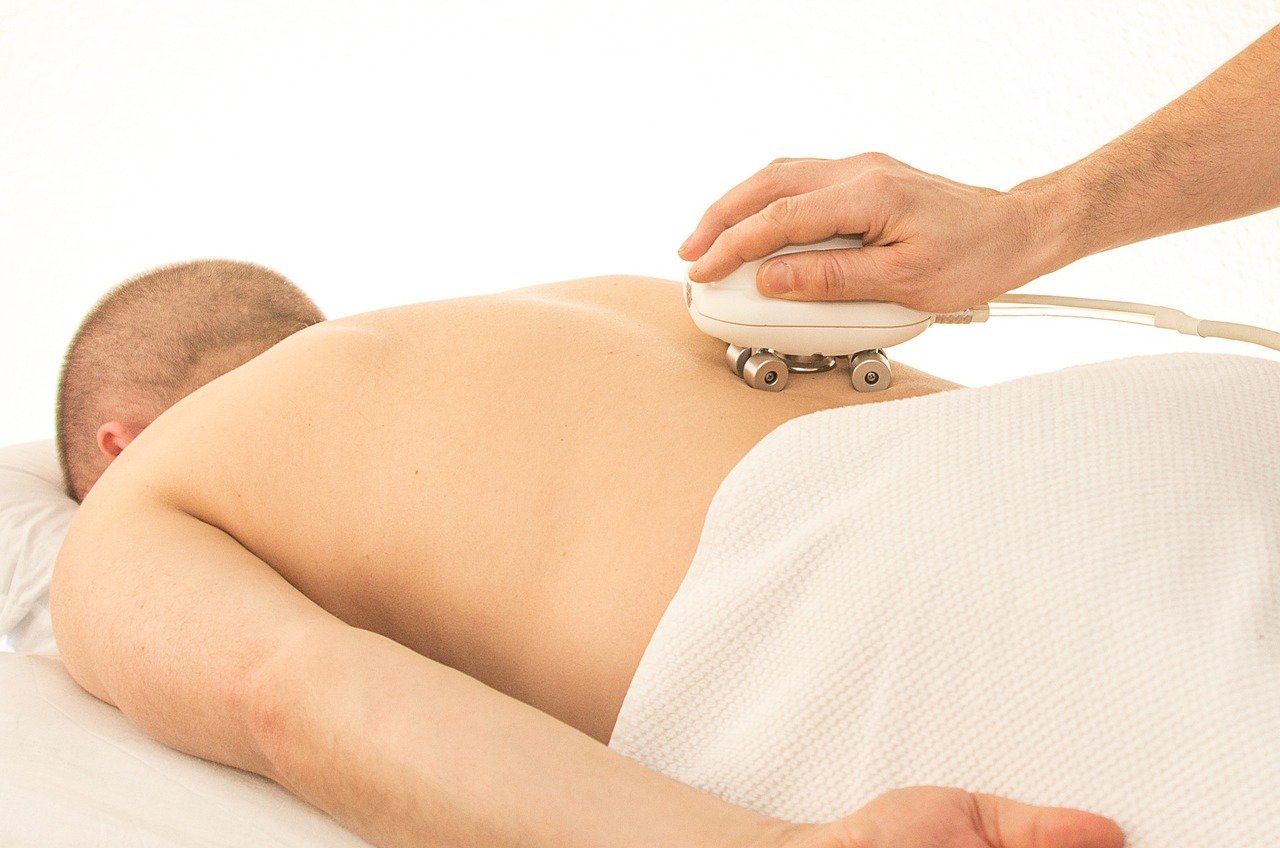
Imagine waking up one morning with an unbearable ache in your neck – the kind of pain that makes it hard to turn your head or even stand straight. You’re not alone. Neck pain can strike us unexpectedly, limiting our movements and causing immense discomfort. But fear not! In this article, we will explore seven effective and simple ways to relieve extreme neck pain and get you back to feeling comfortable and mobile in no time. So, let’s discover these techniques that will provide you with the much-needed relief you deserve.

Seek Medical Attention
If you wake up with extreme neck pain, it’s crucial to seek medical attention. Visiting a doctor is the first step to accurately diagnose the cause of your neck pain. They will perform a thorough examination, ask you about your symptoms and medical history, and may order additional tests such as X-rays or MRI scans to rule out any underlying conditions. With their expertise, they can provide you with an appropriate treatment plan and recommend any necessary specialists if needed.
Another medical professional you can consider seeing is a chiropractor. Chiropractors specialize in musculoskeletal disorders and can provide targeted treatments for neck pain. They use manual manipulation techniques to align the spine and relieve tension in the neck muscles. Chiropractic care can be an effective alternative or complement to traditional medical treatments, providing you with non-invasive options for pain relief.
Apply Ice or Heat
Using ice packs and hot towels can bring relief to your neck pain. Applying ice packs to the affected area can help reduce inflammation and numb the pain. Wrap the ice pack in a thin towel and place it on the painful area for about 15-20 minutes. Make sure not to apply the ice directly to your skin to avoid ice burn. Repeat this several times a day to alleviate your discomfort.
On the other hand, heat therapy can also be beneficial for relieving neck pain. Hot towels or heating pads can help relax the muscles, increase blood circulation, and reduce stiffness. Apply the hot towel to your neck for 15-20 minutes at a time. Be cautious not to use excessive heat that can burn your skin. Using a combination of ice and heat can provide even better results, so experiment to see which option works best for you.

Try Over-the-Counter Pain Relievers
Over-the-counter pain relievers can be useful in managing your neck pain. Nonsteroidal anti-inflammatory drugs (NSAIDs) like ibuprofen or naproxen sodium can help reduce pain and inflammation. Acetaminophen is another option that can provide pain relief, although it doesn’t have the same anti-inflammatory properties as NSAIDs. Always follow the recommended dosage instructions and consult your doctor or pharmacist if you have any concerns or underlying medical conditions.
Use Neck Support
Providing proper support to your neck is essential when dealing with neck pain. A neck pillow is specifically designed to maintain the natural curvature of your neck while you sleep, relieving pressure on the muscles and joints. It ensures that your neck is properly aligned with the rest of your spine, reducing the strain and promoting a good night’s rest. Invest in a supportive neck pillow that suits your sleeping position and preferences for optimal comfort and pain relief.
If you prefer additional support during the day, a collar brace can be beneficial. Collar braces are used to limit neck movement and provide stability, especially if you have experienced a neck injury. They can help reduce strain on the neck muscles and keeps the head and neck in proper alignment. However, consult with a healthcare professional before using a collar brace to ensure it is appropriate for your condition and to receive guidance on proper usage.

Practice Gentle Stretches and Exercises
Engaging in gentle stretches and exercises can help alleviate neck pain and improve flexibility and strength in the neck muscles. Neck rotations can help improve range of motion and relieve stiffness. Simply turn your head slowly to the left and right, as far as comfortably possible, and hold each position for a few seconds.
Chin tucks are another effective exercise for relieving neck pain. Sit up straight and gently retract your chin inwards, creating a double chin. Hold this position for a few seconds, then relax. Repeat this exercise several times, aiming for a total of 10 repetitions.
Shoulder rolls are also beneficial for your neck muscles. Shrug your shoulders up towards your ears, then roll them forwards and downwards in a circular motion. Repeat this motion in both clockwise and counterclockwise directions for a few minutes.
Remember to start with gentle movements and gradually increase the intensity as your neck pain improves. If any exercise causes worsening pain or discomfort, stop immediately and consult with a healthcare professional before continuing.
Improve Your Posture
Poor posture can contribute to neck pain, so it’s essential to adjust your workstation and make conscious efforts to avoid slouching. Ensure that your chair provides proper lumbar support, keeping the natural curve in your lower back. Position your computer monitor or laptop at eye level to avoid straining your neck by looking down or tilting your head upwards.
Take frequent breaks to adjust your sitting position and stretch your neck and shoulders. Maintaining good posture throughout the day will help reduce unnecessary strain on your neck muscles, alleviating pain and discomfort in the long run.
Take Breaks from Sedentary Activities
If you have a sedentary lifestyle or spend long hours in front of a desk or computer, it’s crucial to take regular breaks and move around. Prolonged periods of inactivity can lead to muscle stiffness and tension in the neck and upper back. Every 30-60 minutes, stand up, stretch, and walk around for a few minutes. This helps promote blood circulation, releases muscle tension, and prevents further discomfort.
In addition to short breaks, incorporate specific neck stretches into your routine. Gently tilt your head from one side to another, forward, and backward to stretch the neck muscles. Rotate your shoulders, allowing the neck and upper back to move and relax. Remember, a little movement can go a long way in alleviating neck pain and improving overall well-being.
Use Relaxation Techniques
Relaxation techniques can play a significant role in managing neck pain, particularly when stress and tension exacerbate your symptoms. Deep breathing exercises are an excellent way to promote relaxation and reduce muscle tension. Sit or lie down comfortably, inhale deeply through your nose, allowing your belly to rise, then exhale fully through your mouth. Repeat this cycle for a few minutes, focusing on your breath, and allowing the tension to release with each exhale.
Progressive muscle relaxation involves systematically tensing and relaxing each muscle group in your body. Starting at your toes, gradually tense the muscles and then release, working your way up to your neck and head. This technique helps increase awareness of muscle tension and consciously relaxes those areas, providing relief from neck pain.
Exploring mindfulness practices, such as meditation or yoga, can also be beneficial. These practices promote relaxation, reduce stress levels, and improve overall well-being. Find a style or technique that works for you and incorporate it into your daily routine to manage neck pain effectively.
Consider Physical Therapy
In some cases, physical therapy may be recommended to relieve severe or persistent neck pain. Physical therapists are trained to assess musculoskeletal conditions and develop targeted treatment plans. They can provide hands-on treatments such as massage therapy, which focuses on reducing muscle tension and promoting relaxation in the neck and shoulders.
Ultrasound therapy is another modality commonly used in physical therapy to address neck pain. High-frequency sound waves penetrate deep into the tissues, promoting blood flow, reducing inflammation, and alleviating pain. Consider consulting a physical therapist to discuss if these treatments are appropriate for your specific neck condition and to receive personalized guidance and care.
Manage Stress
Stress can contribute to muscle tension and exacerbate neck pain. Therefore, it’s important to implement stress management techniques into your daily life. Engaging in activities that help reduce stress, such as yoga or meditation, can significantly improve your overall well-being and alleviate neck pain.
Yoga combines gentle stretches, deep breathing, and mindfulness, making it an effective tool for managing stress and promoting relaxation. Incorporating a regular yoga practice into your routine can benefit not only your physical health but also your mental and emotional well-being.
Meditation, on the other hand, involves focusing your attention and eliminating the stream of thoughts that may contribute to stress. Taking a few minutes each day to sit quietly, focus on your breath, and let go of any tension or worries can bring a sense of calmness and reduce the impact of stress on your body, including your neck.
Additionally, find stress-reducing activities that resonate with you, such as listening to calming music, spending time in nature, engaging in hobbies, or practicing deep breathing exercises. By managing stress effectively, you can minimize its impact on your neck pain and improve your overall quality of life.
In conclusion, waking up with extreme neck pain can be a distressing experience, but there are various steps you can take to find relief. Seeking medical attention, including consulting with a doctor or chiropractor, is crucial in accurately diagnosing the cause of your neck pain and receiving appropriate treatment. Applying ice or heat, trying over-the-counter pain relievers, and using neck support, such as pillows or collars, can also bring relief.
Incorporating gentle stretches and exercises into your routine, improving your posture, and taking breaks from sedentary activities can help alleviate neck pain and prevent future discomfort. Implementing relaxation techniques like deep breathing exercises, progressive muscle relaxation, or considering physical therapy can further enhance your pain management strategies. Finally, managing stress through practices like yoga, meditation, or engaging in stress-reducing activities can improve your overall well-being and alleviate neck pain.
Remember, finding the best approach for relieving your extreme neck pain may involve a combination of these strategies, and it’s essential to listen to your body and consult with healthcare professionals to determine the most appropriate course of action. By taking these steps and prioritizing your neck health, you can find relief and regain full control of your daily activities.





